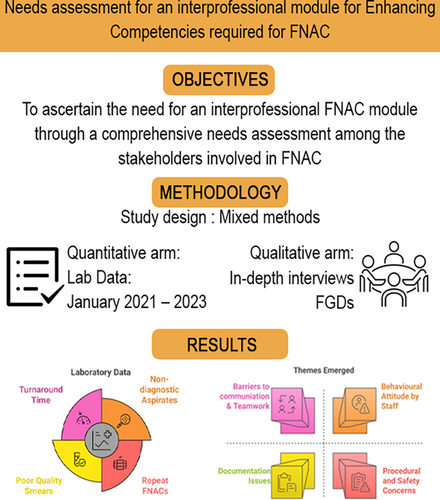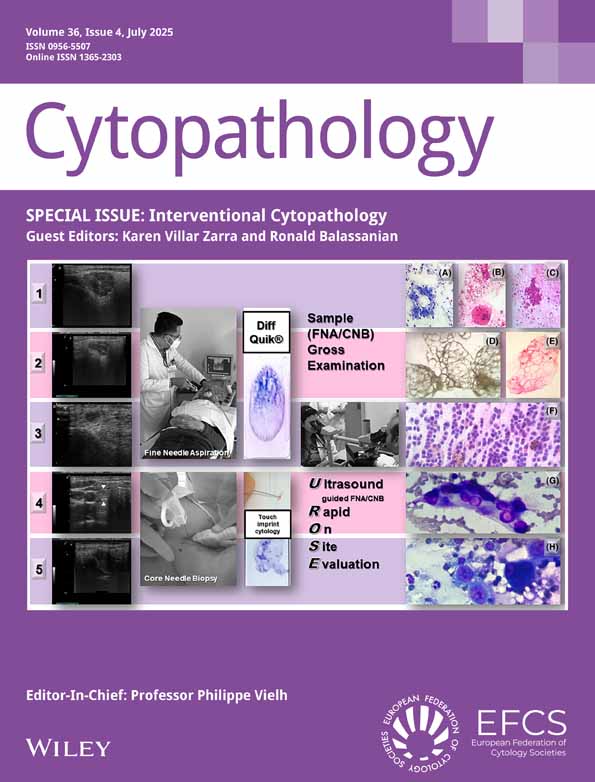Needs Assessment for an Interprofessional Module for Enhancing Competencies Required for Fine Needle Aspiration Cytology (FNAC)
ABSTRACT
Fine needle aspiration cytology (FNAC) is a cost-effective, minimally invasive diagnostic tool requiring collaboration among pathologists, radiologists, nurses, and technicians for optimal outcomes. However, interprofessional collaboration remains limited, leading to diagnostic delays and reduced patient satisfaction. This study identifies the need for an interprofessional FNAC training module through a comprehensive needs assessment among the stakeholders involved in FNAC service.
Methods
A mixed-methods approach was used, comprising a retrospective laboratory audit for the quantitative arm (2007 FNAC procedures were audited for diagnostic accuracy, turnaround time, and non-diagnostic aspirates) and focus group discussions (FGDs) and in-depth interviews (IDIs) for the qualitative arm. SPSS Version 20 was used to evaluate the quantitative data, and thematic content analysis was used to analyse the qualitative data.
Results
Quantitative analysis of 2007 FNAC procedure revealed a diagnostic accuracy rate of 87.5%, with 12.5% discordant cases and 4.58% non-diagnostic aspirates. Key issues from qualitative research included incorrect labelling of slides and improper disposal of FNAC items. However, effective collaboration, particularly between laboratory technicians and pathologists, enhanced the smear quality.
Conclusion
This needs assessment highlights critical deficiencies in FNAC services, emphasising the urgency of an interprofessional training module. Addressing gaps in guided FNACs, sample handling, waste disposal, and patient scheduling, the module can enhance diagnostic accuracy, reduce errors, and improve patient care. Implementing this initiative promotes collaboration, fostering a culture of excellence and continuous improvement in healthcare.
Graphical Abstract
This study identifies key challenges in Fine Needle Aspiration Cytology (FNAC) practice, including diagnostic inefficiencies and interprofessional gaps. Using a mixed-methods approach, it highlights the need for an interprofessional training module to enhance competencies, improve patient-centred care, and strengthen collaboration among healthcare professionals in FNAC procedures.
Conflicts of Interest
The authors declare no conflicts of interest.
Open Research
Data Availability Statement
The data that support the findings of this study are available from the corresponding author upon reasonable request. The data is not publicly available due to privacy or ethical restrictions.





